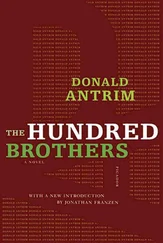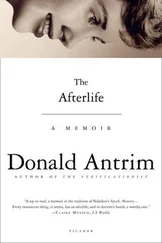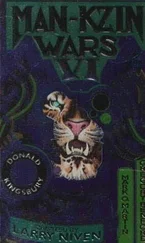Donald Antrim - The Verificationist
Здесь есть возможность читать онлайн «Donald Antrim - The Verificationist» весь текст электронной книги совершенно бесплатно (целиком полную версию без сокращений). В некоторых случаях можно слушать аудио, скачать через торрент в формате fb2 и присутствует краткое содержание. Год выпуска: 2011, Издательство: Picador, Жанр: Современная проза, на английском языке. Описание произведения, (предисловие) а так же отзывы посетителей доступны на портале библиотеки ЛибКат.
- Название:The Verificationist
- Автор:
- Издательство:Picador
- Жанр:
- Год:2011
- ISBN:нет данных
- Рейтинг книги:4 / 5. Голосов: 1
-
Избранное:Добавить в избранное
- Отзывы:
-
Ваша оценка:
- 80
- 1
- 2
- 3
- 4
- 5
The Verificationist: краткое содержание, описание и аннотация
Предлагаем к чтению аннотацию, описание, краткое содержание или предисловие (зависит от того, что написал сам автор книги «The Verificationist»). Если вы не нашли необходимую информацию о книге — напишите в комментариях, мы постараемся отыскать её.
One April night, a group of psychologists from the Krakower Institute meet at a pancake house, where they order breakfast foods and engage in shop talk and the occasional flirtation. At the center of this maelstrom of pyschobabble and unrequited lust sits Tom, program coordinator for the Young Women of Strength, who has been known to sob uncontrollably at meetings. When Tom tries to initiate a food fight, a rival psychologist bear hugs him into submission, resulting in an out-of-body experience that leaves our Tom hovering over his colleagues. In the hands of Donald Antrim, this unique perspective becomes an exuberantly funny riff on our culture that does nothing less than expose the core of emotions underlying the most basic of human needs.
The Verificationist — читать онлайн бесплатно полную книгу (весь текст) целиком
Ниже представлен текст книги, разбитый по страницам. Система сохранения места последней прочитанной страницы, позволяет с удобством читать онлайн бесплатно книгу «The Verificationist», без необходимости каждый раз заново искать на чём Вы остановились. Поставьте закладку, и сможете в любой момент перейти на страницу, на которой закончили чтение.
Интервал:
Закладка:
“Hey! Hey!” is all I can manage to reply. Because of course she is indicting me for a legitimate reason.
In a voice that sounds very much like a woman’s, in that it is deep and resonant with self-possession, with, I suppose I would say, feminine dignity and sexuality — not at all a girl’s voice — she offers, “Why don’t you tell me about the War Against the Crown, Tom?”
“Rebecca, we don’t have to talk about the Revolutionary War if it makes you unhappy.”
“I don’t mind.”
“Maybe it would be better not to.”
“I want to.”
In this way, together, we struggle, offering little concessions, trying carefully to establish good faith.
And I am cheered by her use, in such unaffected, relaxed style, of my name. She has acknowledged our connection. Is it decadent for me to feel optimistic about things? We are entering a new, more mature stage in our relationship.
There is, however, little more of interest to relate about the Incident on the Mound. The Americans were able to muster themselves and retreat without casualties. They stormed the frozen emplacements and captured the undefended six-pounder guns.
“That was the end of the battle?”
“Pretty much.”
“It wasn’t a major event, was it?” Rebecca asks me. I can tell from her voice that she is disappointed. Who could blame her for feeling this way? I can also tell that she is close at hand. I have made it, or almost made it, across the giant tablecloth. All I need to do is reach up and fumble around until — I hope — I touch her; then, if feelings are mutual, and if she truly does not hate me for stabbing her dad; if, as is quite possible and in fact perversely likely in a situation like this, she in some way, perhaps without knowing it, loves me for slicing up her old man, we will embrace and, wrapping the cloth around us for a blanket, watch the sunrise and, in some probably limited way that gently and affectionately takes into account the loss of my legs, Rebecca and I will cuddle on this sacred earth.
I wiggle closer to her. I know she is near. It is touching to listen to Rebecca’s breaths. The pursuit of the mound’s summit has exhausted me. I am depleted, a cripple. In spite of the April night’s cold, my face and back are damp with sweat. But what the wetness feels like to me is blood.
It hurts to breathe. I clutch the blue fabric laid so neatly by Rebecca across the meadow grass, and I tell her, in panting, half-delirious tones, a few entertaining facts about military provisioning and outfitting in the era of mad King George. Particularly noteworthy were the uniforms, which came complete with a tight, double-breasted tunic designed to button up and look smart on the parade ground, but which allowed for precious little movement of the upper body or arms. On behalf of her father, and to relieve my obvious sense of guilt, I denigrate the coats to Rebecca.
“They were straitjackets.”
Then I tell her, “Your dress and this tablecloth are the identical shade of blue worn by American officers in the War for Independence.”
“So?”
She’s got me. What is the point I am trying to make? Everything runs together and collides in my mind. Redcoats? Blue cloth? Guns blazing? Sticks and stones?
The hospital in the clouds. Sweat and blood. A little dog and the fishermen in their boats.
I am after all a married though childless man. I have a lot of problems. I have an unpainted room at the top of the stairs. I feel the dread of love. Jane wants our room blue.
Blue for a boy! Soul of my unborn son! The cloth on the mound! The waitress in her blue dress and Bernhardt wearing red, and the sweetness of pancakes and pitchers of milk and beer in bottles, and Sherwin Lang and all our old, tired heads going bald, and a hard-on pressing against my back, a man’s arms wrapped around me.
General Burgoyne. Jane upstairs walking barefoot, the cat rubbing against her leg. Fog like a white smoke pooled beneath the sky.
“The fog that winter morning in 1775 was no accident, Rebecca. That bad weather came for a reason. I realize it may sound intemperate of me to say this, but I believe that the souls who reside in this grove will brook no violence against their resting place, nor against the living who seek asylum in the magic circle inscribed by the mound.”
“Do you believe that?”
It’s a good question. I’m not sure I can give an answer. Instead, I reach out with my hand and, without much trouble, find Rebecca’s in the mist. My hand goes to hers. We are united. Holding Rebecca’s warm fingers laced between mine, I am able to breathe more freely, and to stop thinking so hard about death. I feel soothed, a little.
It is at this moment that rain, having stayed in the distance, in the background as it were, for such a long time, for the duration of the night practically, begins to fall. I wrench my body forward — an ultimate, slightly dizzying effort to move before, finally, I am able to rest my head in Rebecca’s lap. Rain strikes my shirt and the tablecloth, making its muted, intermittent noise, precipitation hitting fabric. Closing my eyes, I say to Rebecca, “The spirits of the dead are everywhere around us. They’re out here now. Can you hear? We’re not alone. Listen. The dead have come out to make love on the mound. Do you hear?”
“You’re crazy,” she says; and I murmur to her, “The spirits want us to love each other.”
“No, they don’t.”
“Yes, they do.”
“They don’t.”
“They do.”
“No. They don’t !” she insists.
“I’m afraid they do, actually, Rebecca,” I say to her, shamelessly keeping to my line of seduction, adding physical emphasis by pressing and rubbing my forehead against her kneecap.
She giggles, “You’re being silly.”
She’s right. The question “How can I possibly speak with authority in a situation defined and permeated by sexual fantasy?” might better be asked: “How can I invoke ghosts as an excuse to come on to Rebecca, and keep a straight face?”
She says, “You’re the kind of man who knifes someone’s father and makes him bleed.”
True enough. What can I say? I say what I can and put her on the defensive. “I’ve apologized for that already.”
“I know. I’m sorry for bringing it up.”
Then I say, making a subtly infantilizing, reciprocal conversational offering, “Don’t apologize. You did nothing wrong.”
She answers this with a question that breaks my heart:
“Do you love me?”
“You know I do,” I tell her in genuinely sincere though deliberately evasive and ambiguous language.
It is then, of course, that I become fully and absolutely aware that Rebecca and I are not alone atop the sacred burial mound. And I must, under these circumstances, wonder if it is in fact possible that my “invocation” of accompanying, companionable, love-bound spirits could advantageously be understood as a spoken expression of personal and powerful creative agency. Have I become, as earlier in the evening I imagined I might, an inventor of reality? Have I, over the course of our long night in the Pancake House (and, for the sake of argument, out here on the ancient mound), become a child in the truest, most magical sense? Let us keep in mind that the flight to Battlefield Grove with Rebecca was nothing more than an elaborate and, admittedly, rather consuming fantasy; the whole thing has been entirely — or at least mostly: even the most transparently erotic fever dreams contain and reflect meaningful aspects of privileged, private emotional knowledge — the whole thing has been entirely, as I was saying, made up; our time together on the mound has existed (and, in a way, continues to function) in my head, in my mind; it was (and is) a subjective concoction, in other words; the flight to the mound was (is) simply what I’d wished (and will always and forevermore wish?) to be happening, though I cannot (I could not) in honesty claim that any of it was (or even is ) happening, because — let’s not forget — in reality, I was hanging like a doll from Bernhardt’s massive arms, queasily drifting beneath the Pancake House ceiling with — let’s not overlook this, either — my father figure’s penis hard against my back, pressing, as they say, into my back; and, in uninvented reality, Rebecca also was suspended in air, dangling between me and my buddy Sherwin, holding both our hands, the doctor somewhat restrained in movement by his constricting black coat, nonetheless struggling drunkenly as Leslie Constant swung from his narrow belt like a trapeze girl about to lose her blue shoes. And in reality, Dan Graham was smoking a cigarette and propping his awkward weight against the decorative, bubbling fish tank, threatening to overturn the tank and flood the Pancake House. Behind the candy counter, Peter Konwicki’s child-psychology trainee Bob slipped pink hands beneath Katharine’s blouse, slipped them up and under her shirtfront’s ruffled, untucked tail, feeling his classmate’s stomach above her pants in a manner that he apparently thought unobtrusive to Katharine and unnoticeable to people standing nearby or hanging amid pots and pans overhead. These are — I should say these were, that April night of flapjacks and toast — a random assortment of substantive realities. These were not mere interpretations of feelings (I’m with Winnicott on the relative inconsequentiality of interpretations, either in the analytic setting or in everyday life); these were the couplings and levitations that I saw and felt and experienced. In spite of them, in spite of and because of every great and humiliating thing taking place that evening, I felt my head nestle into Rebecca’s comfortable lap, and I heard the first spring shower fall onto Battlefield Grove, the rain coming down to spatter us; and I could smell ozone brought down by this weather, and the rich, virtually barnlike scent of fermenting winter grass and wet dirt; and though I was cold and a cripple, I was, for the moment, able to breathe; and I felt at peace, and closed my eyes. I could’ve slept, I think. Before long, it was true, Jane would arrive at the Pancake House to pick me up and carry me home in our little green car. And what joy it would be, then, to wiggle free from Bernhardt’s clutches, and to crawl over to her and embrace her legs, then heave myself up and let her help me to the parking lot. She could prop me against the fender while she opened the car’s door, before assisting me into the passenger seat; then — there are a few things I can still accomplish for myself — I might buckle my seat belt, rest my head against the headrest, and shut my tired eyes once again. Beginning at the beginning, leaving nothing to the unscientific imagination, I will tell Jane all about our wonderful psychoanalytic evening. It will take the entire ride home, the full length of Eureka Drive from south to north, from covered bridge to College Hill and across to Granite Farm Road — it will likely take the whole trip to get everything in. Jane is demanding in relation to details. We’ll motor up the steep hill that winds past the book factory, and I might lower the passenger window a crack before telling my wife that when Richard hoisted me in his arms, all I could think about was her. This would be my cue to place my hand on Jane’s knee, lightly so as to avoid pressing hard and causing her foot to squash down the accelerator; and, squeezing — but not tickling! — her leg, I’d describe my own and the others’ after-dinner ascensions, Rebecca’s and Sherwin’s and Leslie’s flights so characteristically undertaken, so perfectly demonstrative of essential qualities in each person’s sexual style. Of course I would take care not to neglect a thorough rundown, for Jane’s entertainment, of love affairs getting started on the ground and in midair. Would she guess that I might be dropping hints about her trysts with Manuel? How many couples, making their way home and to bed in one another’s arms, would, looking back, date their unions to the evening Tom dropped the cinnamon-raisin toast and, raped by Bernhardt, lost the use of his legs, then blasted through the roof? (Speaking of roofs, I’d want to remember to comment on the floating hospital, the golden intensive care unit and, down the hall and around the corner from the ICU, the new, state-of-the-art maternity ward.) I’d even tell Jane about my sojourn with Rebecca at Battlefield Grove — or maybe not? — sitting in our cozy green car as we creep along from red light to red light through the historic downtown row-house grid, a stop-and-start mile before Eureka rises to leave the market district and scale College Hill. Somewhere past the intersection with Woodrow Avenue — one of those dangerous, sloping, four-way stops that, when approached from downhill, require applying the emergency brake — I might work up the courage to let Jane know that I’d had a chance, while floating over my Krakower Institute colleagues’ heads, to do some hard thinking about children. Locked in Bernhardt’s grasp, I had finally come to understand the meaning and utility of our room at the top of the stairs. I will not be telling Jane anything she does not intuitively know when I say that the thing living there, waiting behind a closed door with so many dead moths scattered across the floor, is my own manhood. Our unborn child is the man she married years ago after walking aimlessly through the dark parts of town, rolling her bicycle through the afternoon light and the falling night, on the summer day when that stranger’s dog ran barking from a hillside yard to attack us. Later, a scary bartender told us about his own dead son. First we ran away from the dog, then we ran from the man behind the bar. It was dark out. We were young. We went to bed. We kissed, and, kissing, simply fell in love. Everyone needs someone to fuck, but why should I for one minute believe that my body’s needs — or Jane’s, for that matter — are crucially different in kind or intensity from the desires and longings felt by thousands of men and women in marriage? Perhaps it is appropriate to say at this juncture that one of the distinguishing pleasures — and illusions — of the psychotherapeutic process is the growing appreciation of personality as a mutable and volatile construct. We tend to scrutinize our own characters, or at least our character traits, all the identifiable likes and dislikes and the old, troublesome habits and so forth, as examples of what we like to call individuality; and it seems to me that, as egotistic individuals, we must at various times use one or another of the sacred languages provided by contemporary scholarship — it’s a psychoanalytic vernacular in my case — to utter testimony to ourselves and to the people nearest us, affirming our narcissistic independence from the mass of anonymous folk stumbling without awareness through the world. In this way, asserting and defining separateness, we eventually embrace fear and become — if this makes sense— uniquely ordinary members of the neighborhood, living life as intellectual animals who are not afraid to be afraid of sex and sex’s outcome, children. I realize that nothing I am saying will strike the average educated thinker as anything more than a self-conscious rehashing of the most basic and thoroughly integrated social ideas, “typically” post-Freudian and, specifically, Adlerian. However, it is important, I think, to consider both pride and humility in relation to events that night at the Pancake House & Bar. Remember that it was April, the season of Easter, the closing of winter. Who was Bernhardt if not my father lifting me in the air? Didn’t he smell horribly of aftershave? Hadn’t he destroyed, quite possibly indefinitely, my power to walk or even stand upright? Weren’t my hands immobilized, my ribs crushed by the man’s arms? And what was the meaning of the little dog peering out from Rebecca’s neck beneath her hair? In the well-known painting, the dog stares endlessly into a forest world — but this can only be our world, I would guess, the concrete, earthly habitation of any viewer — that has been unrecoverably lost to Brueghel’s exhausted travelers. Ahead, for the pilgrims, lie open fields and a village with its church’s steeple pointing toward heaven. My village that night was the Pancake House; my forest, Battlefield Grove; my steeple, the detached crown of the hospital making its steady way through space toward its rendezvous with the breakfast restaurant. And so it was appropriate — if you stop and think about it — that I would find myself, that night, occupying two or three places simultaneously. I’m not even sure what tense structures to use to describe this order of fragmentation. I was (and had been) in the air over Maria and Manuel, Peter and Dan, and the others from the Institute; I was (and am) curled up on the mound with my head buried in Rebecca’s lap. I was in Bernhardt’s hug. Hovering overhead inside the Pancake House & Bar, my feet dangling, I had become nothing more, really, than what Richard himself had claimed I was, back at the start of our evening together, when I clambered over his shoulders, then attempted to throw that bread and was, instead, carried aloft in shame. I was this man’s tiny baby. With my hand in Rebecca’s, and with my father’s cock beside me, I was being born. Was it surprising that I might take flight to the battlefield? Was it surprising that I might crave a girl’s lap to rest my head on? The grass under blue cloth beneath our bodies smelled like damp hay, and the breeze felt cold. Rain poured down; mist was silver and white; humidity felt heavy against the skin. Here were precisely the atmospheric and barometric conditions under which I might get a reliable boner. I would feel proud to tell Jane everything that had come to pass in the Pancake House, because, you see, I would at last be ready, though without legs and still at heart a child, for sex.
Читать дальшеИнтервал:
Закладка:
Похожие книги на «The Verificationist»
Представляем Вашему вниманию похожие книги на «The Verificationist» списком для выбора. Мы отобрали схожую по названию и смыслу литературу в надежде предоставить читателям больше вариантов отыскать новые, интересные, ещё непрочитанные произведения.
Обсуждение, отзывы о книге «The Verificationist» и просто собственные мнения читателей. Оставьте ваши комментарии, напишите, что Вы думаете о произведении, его смысле или главных героях. Укажите что конкретно понравилось, а что нет, и почему Вы так считаете.












